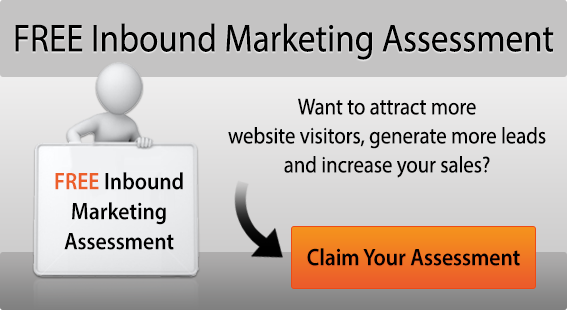Why Inbound Marketing Is The Future Of B2B Marketing

We’ll start by saying that inbound marketing is the present of B2B marketing, as well as the future. B2B purchasing behaviour today is very different to what it was a decade ago, when businesses went out looking for customers. Nowadays, it’s the customer that usually seeks out a product or service without waiting for a sales approach from a supplier, by doing research on Google and social media, and comparing their options before making the first enquiry. This is the essence of inbound marketing and it’s how most B2B customer-brand interactions take place online. An inbound marketing strategy positions your business for better visibility online so that your customers’ questions are answered at the right time, and it is as easy as possible for them to make their inbound enquiries.

Better and stronger customer relationships
Inbound marketing goes beyond the scope of traditional outbound marketing and advertising, in which businesses continually sought out new customers (often through trial and error) using a number of direct tactics. A classic example of this approach, now widely discredited, is the ‘cold’ sales phone call, and another – still popular among B2B businesses – is face-to-face sales through tradeshows and networking events.
In inbound marketing, you don’t need to advertise in the strict sense of the word, considering that 80% of decision makers would rather get information in formats other than plain sales advertising. Advertising does have an important role to play in inbound, especially through pay per click (PPC) adverts and sponsored content on Google, LinkedIn, and Facebook. However, typical sales and information channels in inbound marketing are your business blog and social media pages, in which helpful content is freely shared with your target buyers, and through which your customers are free to engage with you on their own terms.
In place of pushing sales – with its inevitable focus on the supplier business, rather than the customer –, inbound marketing focuses on offering relevant information to establish your expertise and build trust. The trust cultivated by inbound marketing underpins solid and lasting business relationships with greater longevity and a higher lifetime value than many sales made through other methods.
Enables two-way communication
Outbound marketing pitches often feel like a monologue in which the seller dominates the interaction, with the customer expected to respond with a series of objections or questions – but never to initiate or steer the dialogue. This can clash against the expectations of potential customers, who increasingly perceive the ideal B2B relationship as a two-way conversation.
Inbound marketing creates an open and interactive atmosphere whereby both parties can explore mutual interests and ways of expanding their market share by delivering reciprocal value. In short, it opens the possibility of creating strategic partnerships that could generate enormous value in the future.
Features vs valuable information
Inbound marketing can take many forms, one of which is the delivery of valuable educational content to help steer prospective customers through the stages of the buyer journey. This stands in contrast with simply listing features or technical details of a product or service, which typically have a low appeal for prospects at an early consideration stage. Although features matter, they have limited value when it comes to establishing your value proposition – it's not what it does, it’s what you do with it.
By contrast, educational content – disseminated through a blog, downloadable content, keyword-specific landing pages, and social media – helps position your company as an industry leader and offers value to your audience, especially if the content isn’t directly selling your products or services. For example, you can publish written or video content covering topics that are relevant to potential customers from a business point of view (e.g. choosing time-saving software, profit-maximising strategies, brand building, etc.) – and that address buyer-specific questions for different stages of the sales funnel.
From B2B to human-to-human
Business 2 Business is, in many ways, an unfortunate term, because it is always people who make purchase decisions, and not corporate entities. Inbound marketing gives you greater flexibility to personalise your sales content and engage your target buyers as individuals with their own challenges and purchase motivations within the companies they work for.
‘Human-to-human marketing’ puts transparency, personalisation, and empathy at the core of every communication strategy to connect with the audience at deeper level –building the content strategy around one or more buyer persona profiles. Prioritising the human aspect of B2B interactions through buyer personas elevates the impact of your marketing beyond the merely transactional, increasing revenues and cultivating long-term growth.
By thinking of B2B inbound as human-to-human marketing, you become free to enrich your sales process with a more natural and engaging range of communication methods, including conversational styles of writing, case studies, personalised niche content, and value-driven sales material.
Next steps
JDR provide tailored inbound marketing support for small businesses in a range of B2B sectors. We can help you harness the potential of inbound marketing to reach niche audiences, increase your online sales and revenues, and lower your cost per sale. To find out more, please call 01332 215152 today.
Image source: Unsplash


